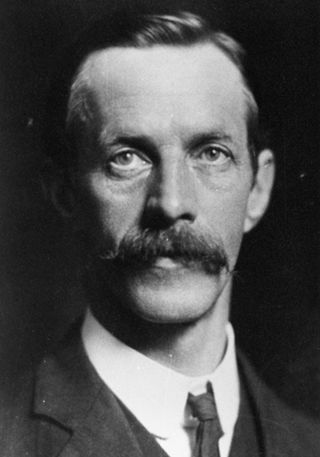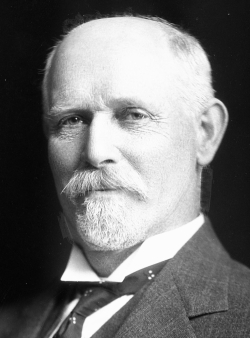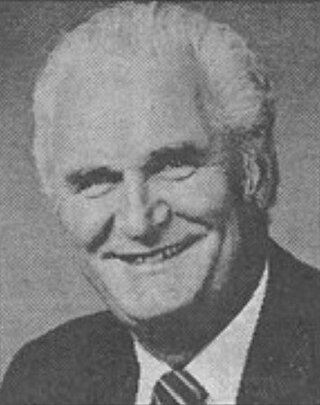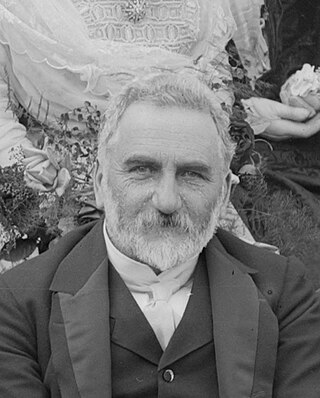
Sir William Appleton was a New Zealand local body politician, advertising agent and leading company director. He was Mayor of Wellington for two terms from 1944 to 1950 after serving as a city councillor from 1931 to 1944. He was knighted in 1950.

George Allen was Mayor of Wellington, New Zealand, for three weeks in 1879.

The 1875 Wellington City mayoral election was the second election for the Mayor of Wellington held by public vote. The election was won by William Hutchison, who beat William Gisborne.

The 1912 Wellington City mayoral election was part of the New Zealand local elections held that same year. In 1911, elections were held for the Mayor of Wellington plus other local government positions. Thomas Wilford, the incumbent Mayor, resigned due to ill health and did not contest the ensuing election. David McLaren was elected to office as the new Mayor of Wellington, beating three other contenders and becoming the city's first Labour Mayor. The polling was conducted using the standard first-past-the-post electoral method.
The 1921 Wellington City mayoral election was part of the New Zealand local elections held that same year. In 1921, elections were held for the Mayor of Wellington plus other local government positions including fifteen city councillors. The polling was conducted using the standard first-past-the-post electoral method.

The 1925 Wellington City mayoral election was part of the New Zealand local elections held that same year. In 1925, elections were held for the Mayor of Wellington plus other local government positions including fifteen councillors. The polling was conducted using the standard first-past-the-post electoral method.

The 1927 Wellington City mayoral election was part of the New Zealand local elections held that same year. In 1927, elections were held for the Mayor of Wellington plus other local government positions including fifteen councillors. The polling was conducted using the standard first-past-the-post electoral method.

The 1933 Wellington City mayoral election was part of the New Zealand local elections held that same year. In 1933, elections were held for the Mayor of Wellington plus other local government positions including the fifteen city councillors, also elected biannually. Thomas Hislop, the incumbent Mayor sought re-election and retained office unopposed with no other candidates emerging. The polling was conducted using the standard first-past-the-post electoral method.

The 1935 Wellington City mayoral election was part of the New Zealand local elections held that same year. In 1935, elections were held for the Mayor of Wellington plus other local government positions including fifteen city councillors. The polling was conducted using the standard first-past-the-post electoral method.

The 1938 Wellington City mayoral election was part of the New Zealand local elections held that same year. In 1938, elections were held for the Mayor of Wellington plus other local government positions including fifteen city councillors. The polling was conducted using the standard first-past-the-post electoral method.

The 1941 Wellington City mayoral election was part of the New Zealand local elections held that same year. In 1941, elections were held for the Mayor of Wellington and fifteen city councillors plus seats on the Wellington Hospital Board and Wellington Harbour Board. The polling was conducted using the standard first-past-the-post electoral method.

The 1944 Wellington City mayoral election was part of the New Zealand local elections held that same year. In 1944, election were held for the Mayor of Wellington plus other local government positions including fifteen city councillors. The polling was conducted using the standard first-past-the-post electoral method.

The 1968 Wellington City mayoral election was part of the New Zealand local elections held that same year. In 1968, elections were held for the Mayor of Wellington plus other local government positions including fifteen city councillors. The polling was conducted using the standard first-past-the-post electoral method.
The 1998 Wellington City mayoral election was part of the New Zealand local elections held that same year. In 1998, elections were held for the Mayor of Wellington plus other local government positions including 18 councillors. The polling was conducted using the standard first-past-the-post electoral method.

The 1971 Auckland City mayoral election was part of the New Zealand local elections held that same year. In 1971, elections were held for the Mayor of Auckland plus other local government positions including twenty-one city councillors. The polling was conducted using the standard first-past-the-post electoral method.

The 1989 Wellington City mayoral election was part of the New Zealand local elections held that same year. In 1989, elections were held for the Mayor of Wellington plus other local government positions including twenty-one city councillors. The polling was conducted using the standard first-past-the-post electoral method.

Martin Maxwell Fleming Luckie was a New Zealand cricketer who played two matches of first-class cricket 29 years apart – one in 1891 and the other in 1920. He became a prominent cricket administrator and a city councillor in Wellington. He was twice deputy mayor: from 1929 to 1931, and again from 1936 to 1947.

The 1906 Wellington City mayoral election was part of the New Zealand local elections held that same year. In 1906, elections were held for the Mayor of Wellington plus other local government positions. The polling was conducted using the standard first-past-the-post electoral method.

The 1971 Christchurch mayoral election was part of the New Zealand local elections held that same year. In 1971, elections were held for the Mayor of Christchurch plus other local government positions. The polling was conducted using the standard first-past-the-post electoral method. The incumbent, Ron Guthrey of the Citizens' ticket, was defeated by the Labour Party candidate Neville Pickering.

The 1931 Lower Hutt mayoral election was part of the New Zealand local elections held that same year. The elections were held for the role of Mayor of Lower Hutt plus other local government positions including the nine borough councillors, also elected biennially. The polling was conducted using the standard first-past-the-post electoral method.















